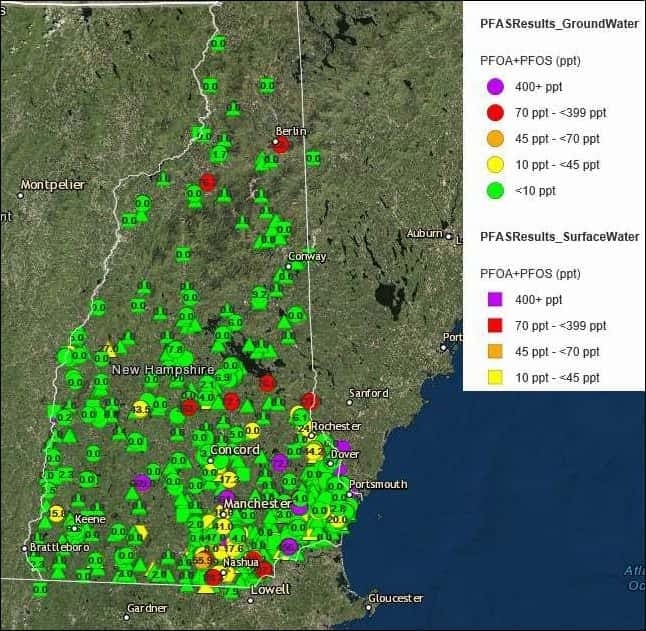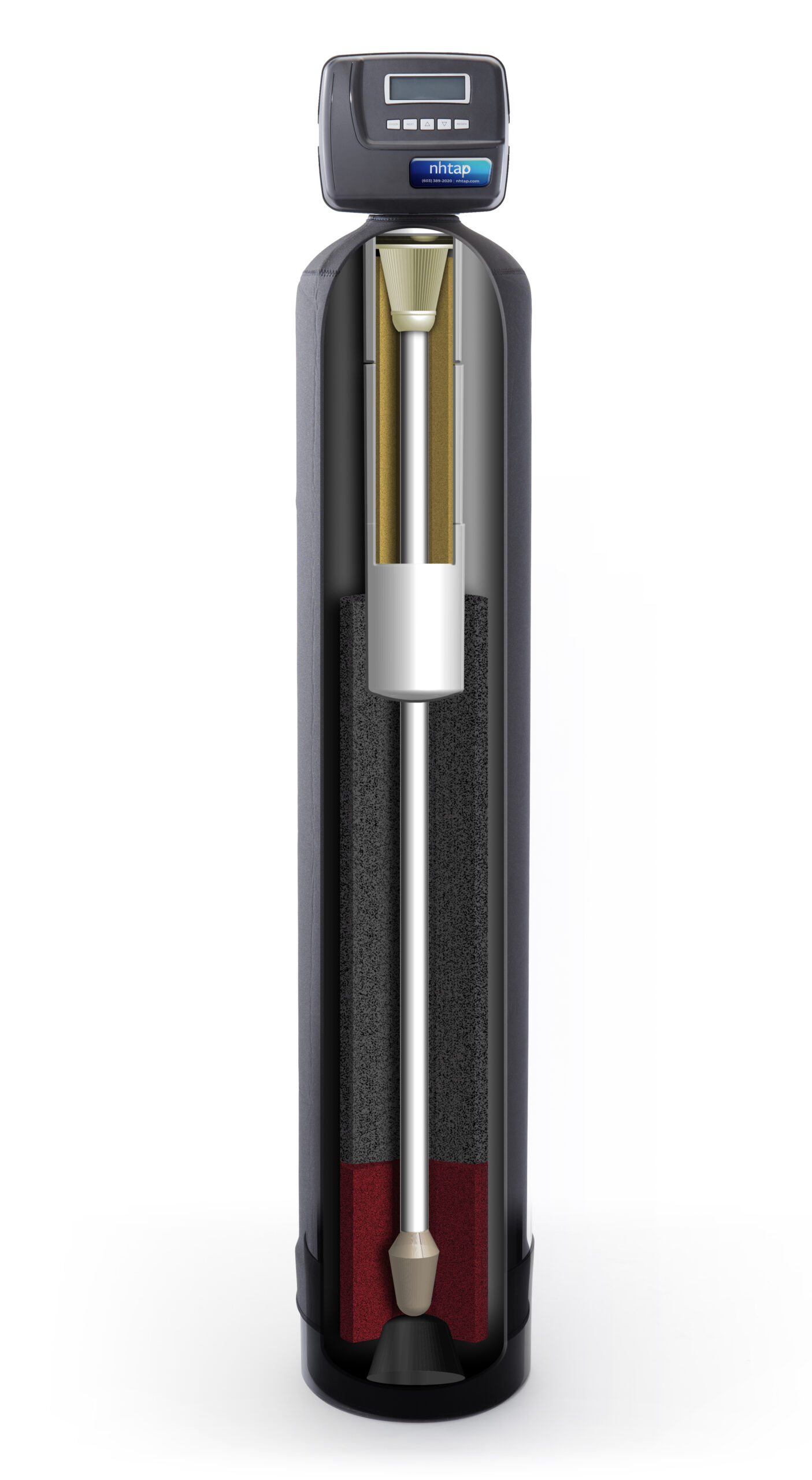More PFAS in New Hampshire — and What That Means for You

Water is a basic need for life—and we shouldn’t have to worry about the quality or standards. NH residents hear about this issue on a regular basis—and if you have well water or live near the Pease Tradeport or the Saint-Gobain, you may be very concerned about your and your family’s well-being. Since PFAS is being found in more and more water tests locally, see what it means for you!
PFAS in NH From the 1990s Until Now
Twenty years ago, NH residents were not on high alert to the potential dangers around them. PFAS was first identified as a potential hazard to human health in 1998, but in the years since then, we are only now seeing more stringent testing and water filtration demanded, due to some of those health hazards becoming reality. In 2014, PFOA and PFOS were uncovered in the public water of Portsmouth and the Pease Tradeport, shutting down the public water well there. And in 2015, the Saint Gobain saga ensued, throwing the Merrimack community into a tailspin, unsure of how the town was going to get its water supply. In 2021, the company was still operating its bypass stack, releasing more PFAS emissions into the air, all while the residents were dealing with health issues and unclean water.

Most recently, the Cornish Elementary School, located between Claremont and Lebanon, has been dealing with gallon jugs and bottled water as they wait for a new well to be dug. According to The Valley News, “The well’s PFOA levels were just below the state’s 12.0 ppt threshold at 11.8 ppt in December 2020. In March 2021, PFOA climbed to 24.8 ppt. The school only learned about the contamination the following summer after June tests showed PFOA levels at 20.7 ppt.” The school has installed a filter in the kitchen for cooking, but ultimately they know they need a new well to get the clean water for their kids.
THE NHDES is conducting research and setting new standards for water quality throughout the state, but there’s still the question for those on well water — and if you don’t want to worry about any PFAS entering your home, a whole home water filtration system may be the best option.
Concerns over PFAS
Unfortunately, PFAS chemicals linger in the environment, and in your body, as forever chemicals. The only way to remove it from water is by specific filtration like Reverse Osmosis, carbon filters, or our proprietary system. These chemicals are carcinogens that can also cause immune issues, low birth weight, and high blood pressure in pregnancy. More studies are being conducted to research the effects of this chemical on the human body—but we do know that a small amount can negatively impact lives.
What You Can Do to Help Protect Your Family
You can find out if your area is affected by PFAS by looking at the interactive map set up by the NHDES. And this helpful guide shows what NH is currently doing to mitigate the risk, and offers some ideas on how to limit your family’s exposure! Also, organizations like the EWG and MADESAFE® are leading the way in helping people understand what’s in the products they buy and how it’s impacting the environment.

To help you every day, consider installing a PFAS filtration system. Some private well owners are now getting rebates to help cover the cost of the filtration units, simply because the state knows something has to be done. We offer separate solutions for homes on well water and one for homes on city water.
At NH Tap, we do our best to help our customers understand what’s in their water today—and give the finest options for the purest water in the future. Schedule a PFAS water test today and learn how we’re helping our neighbors leave chemically-tainted water behind for a better and cleaner tomorrow!
Return to Articles